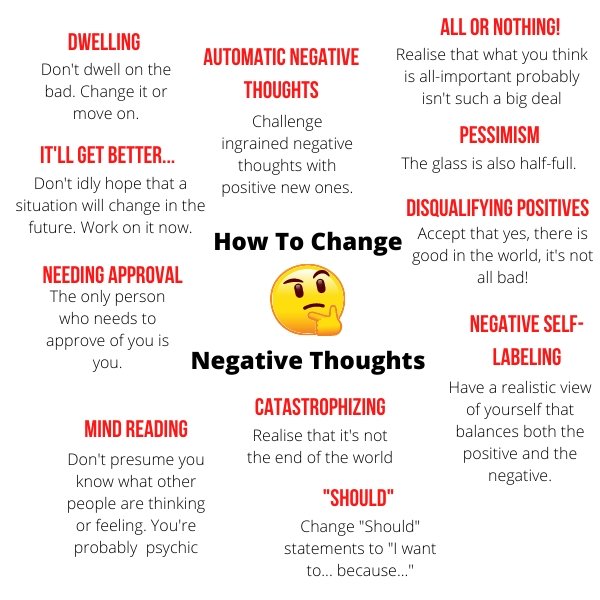
Taking self-criticism to the extreme: Strategies on how to exit this loop of negative self-thinking
Most psychologists would agree with this statement: “We are our own worst self-critic”. Thich Nhat Hanh shared a beautiful quote: “To be beautiful means to be yourself. You don’t need to be accepted by others. You need to accept yourself”
This quote highlights the significance of setting high standards and pursuing personal growth by accepting oneself without relying on validation from others. However, it cautions against self-imposed expectations that result in self-criticism and negative self-talk. It emphasizes how many individuals carry regrets and unfulfilled aspirations due to feelings of un-worthiness or un-deservingness.
Our internal dialogue often tends to be more critical compared to how we communicate with others. This pattern of negative self-talk can be incredibly damaging, often more than we realize. The issue lies in the fact that we have become so accustomed to this negative inner dialogue that we are not even conscious of it. Despite our lack of awareness, our mental and physical well-being are still affected by this harmful self-talk.
The aim of avoiding self-criticism is to learn to value oneself based on personal beliefs rather than seeking external validation. Breaking free from a shame-based self-image and the need for self-criticism and hateful self-talk becomes crucial in order to avoid falling into depression, which can hinder progress and success. There are several strategies for silencing the inner critic and breaking free from this cycle of detrimental thoughts that restrict belief in one’s own potential for success. The ultimate goal is to develop self-approval, self-love, positive relationships, and a sense of self-worth.

Strategy 1: What are your authentic wants and desires? What activities, passions, goals, needs, and wishes truly resonate with you? Take the time to identify and make a list of these, and honestly evaluate whether pursuing them would genuinely bring you a sense of fulfillment and joy.

Strategy 2: Practice mindfulness by observing your actions, reactions, and how others respond to you without passing judgment. Embrace self-acceptance and refrain from labeling yourself negatively. Deliberately cultivate positive emotions to break free from the habit of labeling yourself based on feelings of shame.

Strategy 3: Reduce self-criticism by acknowledging that making mistakes is a normal part of being human and doesn’t diminish your worth or intelligence. Develop a more objective perspective on your abilities and actions through self-compassion. Actively nurture positive emotions and gradually increase self-approval.

Strategy 4: Pay attention to your internal dialogue and be mindful of the language you use, as language holds significant power. Your internal dialogue is a reflection of your beliefs about reality. Monitor and consciously observe how you speak to yourself because your mind is receptive. If you wish to change your emotional state, simply reframe your thoughts and say, “I won’t allow these feeling of negative self-talk” or “I choose to only accept positive affirmation to enter my mind.” By doing so, you empower yourself to take control of your emotions.

Strategy 5: involve identifying your disappointments by understanding where they come from, examining the expectations that have led to those disappointments (whether self-imposed or from others), and evaluating if those expectations are truly valid. (obviously the image listed above is just a sarcastic narrative to what severe disappointment may mean to some people)
There is no magic solution to completely reverse the feelings of self-criticism and ongoing self-inflicted torment we subject ourselves to. Through constant comparisons with others on social media, we intensify this process, leading to heightened levels of anxiety and depression. We consciously allow this to happen, and we cannot blame anyone else but ourselves for permitting it. While it is true that some individuals have to deal with negative and toxic coworkers or family members who constantly belittle them, most of the time we inflict these hardships upon ourselves. It is important to initiate changes today to prevent long-term mental harm that can hinder our success and undermine our well-being.
dr.dan
Related Posts
Perfectionism and anxiety: The terrible duo making lives a living hell. How to let go of that obsession of always wanting to be perfect? Challenge accepted!
In the pursuit of perfection, many find themselves trapped in a cycle of anxiety...
Here are some simple approach to overcome low Self-Esteem, also called Them-esteem.
The word esteem comes from latin, mean Estimate, allowing others to estimate...
Knowing oneself: The importance in understanding your body’s physiological responses to anxiety: Differentiate between reality and make belief!
Understanding oneself, particularly in the context of anxiety and its...
Why is self-awareness the stepping stone to your life’s success?
In our constantly changing world, the path to success can seem intricate and...




